Explainer: What is the significance of South Africa dragging Israel to ICJ?
By Ivan Kesic
South Africa has formally lodged a case against the Israeli regime at the International Court of Justice (ICJ) over violations of its obligations under the Convention on the Prevention and Punishment of the Crime of Genocide (Genocide Convention) amid the genocide in Gaza.
An application instituting proceedings against the occupying entity comes after nearly three months of genocidal war on Gaza that has killed more than 21,000 Palestinians, mostly women and children.
According to the application, "acts and omissions by Israel are genocidal in character, as they are committed with the requisite specific intent to destroy Palestinians in Gaza as a part of the broader Palestinian national, racial and ethnical group."
The conduct of the Israeli regime, through its organs, agents and other entities, acting on its directions, control or influence, is in violation of its obligations under the Genocide Convention,” it adds.
The applicant further states that the Tel Aviv regime, since October 7 2023 in particular, has been carrying out the genocide and "has engaged in, is engaging in and risks further engaging in genocidal acts against the Palestinian people in Gaza.”
South Africa seeks to invoke ICJ’s jurisdiction based on Article 36, paragraph 1, of the Statute of the Court and Article IX of the Genocide Convention, to which both South Africa and Israel are parties.
The application also contains a request to indicate provisional measures, pursuant to Article 41 of the Statute of the Court and Articles 73, 74 and 75 of the Rules of Court.
The applicant requests the court to indicate provisional measures in order to "protect against further, severe and irreparable harm to the rights of the Palestinian people under the Genocide Convention."
It further requests the ICJ to force the Israeli regime to comply with its obligations under the Genocide Convention, "not to engage in genocide, and to prevent, and to punish genocide."
Earlier legal actions
South Africa, which has experienced apartheid, has been consistent in its anti-racist struggle and has been dedicated to the rights of the Palestinian people since the start of the savage Israeli campaign.
South African President Cyril Ramaphosa has frequently compared Israel’s policies in Palestine with his country's apartheid regime of racial segregation imposed by the white-minority rule that ended in 1994.
Back in mid-November, South Africa together with Bangladesh, Bolivia, Comoros, and Djibouti submitted a referral of the situation of Palestine to the Office of the Prosecutor (OTP) of the International Criminal Court (ICC), pursuant to Article 14 of the Rome Statute.
The referral, delivered in person by South Africa’s ambassador in the Hague Vusi Madonsela, urged the ICC to pay urgent attention to the grave situation in Palestine and thereby, lend their support to ICC Prosecutor Karim A.A. Khan’s investigation.
President Ramaphosa noted that his country, together with many other countries across the world, referred the Israeli regime's action to the Hague-based international tribunal.
South Africa is further encouraging other States Parties to the Rome Statute to join the referral or to submit separate referrals independently.
Iran’s Foreign Minister Hossein Amir-Abdollahian also appealed to the ICC president and prosecutor through letters, emphasizing the need for the international court to initiate judicial proceedings.
He urged the ICC not to allow the perpetrators of serious international crimes in the besieged Gaza Strip to escape punishment, highlighting the importance of adhering to the court's main duty outlined in the Rome Statute by avoiding double standards, selectivity, and politicization.
It should be emphasized that the ICJ, also known as the World Court, is different from the International Criminal Court (ICC), which is also based in The Hague, Netherlands.
The ICJ is one of the six principal organs of the United Nations (UN) and settles disputes between states in accordance with international law or gives advisory opinions. At the same time, the ICC operates independently of the UN and prosecutes individuals for war crimes.
Since its creation in 1946, a total of 191 cases have been entered onto the general list for consideration before the ICJ, of which 21 are still in process, among them the oldest from 1993.
International reactions
Gaza-based Hamas resistance movement praised South Africa’s action and described it as "a significant step to punish the leaders of the Zionist entity and present-day criminals, who have committed the most heinous murders in modern history."
Hamas urged other countries of the world to adopt a similar measure against the occupying Israeli regime, both in national and international courts of law.
"The Zionist regime threatens international peace and security, and must not be allowed to escape punishment for the brutal crimes it has perpetrated against Palestinian children and defenseless civilians in Gaza," the resistance group said in a statement.
Palestinian Ministry of Foreign Affairs also welcomed South Africa’s move, and called on the ICJ to take immediate action to "prevent further harm to the Palestinian people."
"Israel's stated policy, acts and omissions are genocidal in character and are committed with the requisite specific intent to the destruction of Palestinians under its colonial occupation and apartheid regime in violation of its obligations under the Genocide Convention," the ministry said.
The Organization of Islamic Cooperation (OIC) also welcomed South Africa’s decision to file a lawsuit against Israel at the ICJ, calling the court to respond swiftly and take urgent measures to put an end to the genocide committed by Israel in the besieged Palestine.
The OIC stressed that the Israeli regime, the occupying power, is "committing genocide by its indiscriminate targeting of the civilian population, killing and injuring tens of thousands of Palestinians."
It also called out the Zionist regime for "forcibly displacing Palestinians, preventing them from obtaining basic needs and humanitarian aid and destroying buildings, and health, educational and religious institutions."
Palestinian genocide case
Suing the Israeli regime for the Palestinian genocide has been a long-standing topic among legal experts and human rights activists, but with the latest move, South Africa has taken it to a higher level.
Prominent scholars of international law, genocide and human rights take the position that Israel's policies toward the Palestinian people clearly constitute a form of genocide.
Those policies range from the 1948 mass killing and displacement of Palestinians to a half-century of military occupation and, correspondingly, the racist apartheid regime governing Palestinians and repeated military assaults on Gaza.
In addition, there is a dehumanizing vocabulary and official Israeli statements expressly favoring the elimination of Palestinians, as well as denial of the Palestinian people which is a part of the regime's indoctrination of school children.
Genocide is a term that has both sociological and legal meaning, and contrary to popular belief, it does not necessarily imply mass killings.
According to Raphael Lemkin, the inventor of the term, genocide more often refers to "a coordinated plan aimed at the destruction of the essential foundations of the life of national groups so that these groups wither and die like plants that have suffered a blight."
"The end may be accomplished by the forced disintegration of political and social institutions, of the culture of the people, of their language, their national feelings and their religion. It may be accomplished by wiping out all basis of personal security, liberty, health and dignity," Lemkin explains.
The United Nations Genocide Convention defines genocide as "any of five acts committed with intent to destroy, in whole or in part, a national, ethnical, racial or religious group."
The five acts were killing members of the group, causing them serious bodily or mental harm, imposing living conditions intended to destroy the group, preventing births, and forcibly transferring children out of the group.
The actions of the Israeli regime fit perfectly into the above-mentioned explanations of genocide because they in the first row include ethnic cleansing and the multi-decade prevention of normal life in the occupied and blocked Palestinian territories.
The ultimate goal of this, as the Zionist leaders themselves have been openly saying since the establishment of their fake entity, is to erase the Palestinian trance on their own homeland.
The brutal aggression on Gaza in recent months is the continuation of the same genocidal policy, with somewhat bloodier and accelerated methods.
Bosnia genocide experience
Tens of thousands of civilians have been brutally and indiscriminately killed in the Gaza Strip since October 7, many times more than in Bosnia in the 1990s, which the ICJ found to be genocide.
About 70 percent of residential buildings in Gaza have been destroyed or damaged, which clearly shows that the Zionist leadership intends to force a large part of the Palestinian population to "voluntarily" leave and ultimately disappear as a community.
Another important element of genocide is the dehumanizing language towards the victim, which is a confirmed practice of the Israeli leadership throughout their existence, and recently such rhetoric has only escalated.
Since October 7, calls from Israeli regime politicians for the destruction of Gaza City and the occupation of the territory, for the persecution or even the elimination of its entire population have grown louder.
The prime minister of the Israeli regime himself, Benjamin Netanyahu, brazenly justified the horror by calling the Palestinian resistance movement an iteration of the Amalek rhetoric.
This heinous rhetoric from ancient Hebrew myths, often used by Zionist religious fanatics, calls for the complete destruction of the enemy's people without sparing women, children and infants.
In order to establish a special tribunal for Palestinian genocide, as was previously the case with Rwanda and Bosnia, it is necessary to vote for a resolution in the UN Security Council, which seems impossible considering the American veto power.
According to experts, not even the ICC can help because the Israeli regime is not a member of that court, and the actions of ICC prosecutor Karim Khan show a strong pro-Israeli bias and lack of interest in Palestinian suffering.
South Africa's case against the Israeli regime to the ICJ thus remains the only hope for the enforcement of international law and holding the Zionist entity accountable.
UK ordered in 'milestone' court ruling to pay $570 million for colonial-era massacre
VIDEO | Defying the rubble, Gaza opens its first face-to-face school since start of war
‘Ready for next round’: Million-man rally in Yemen backs Gaza, resistance
FM Araghchi departs Muscat for Doha following nuclear talks with US
Israeli keeps killing more Palestinian civilians in Gaza amid relentless ceasefire violations
Aliyev: Azerbaijani territory will not be used for threats against Iran
Turkey arrests two on charges of spying for Israeli regime
Iran FM declares ‘good start’ as US–Iran talks conclude in Muscat


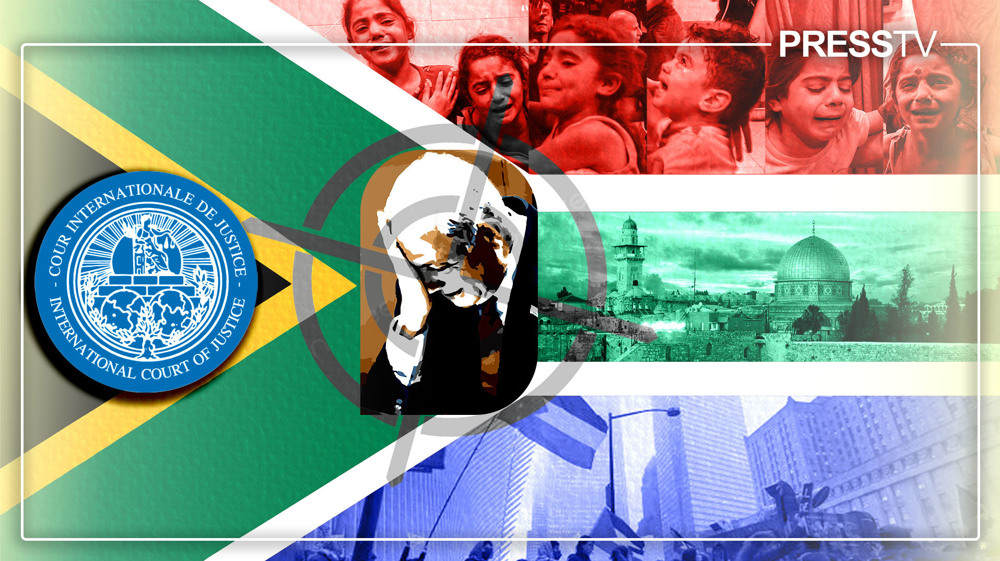
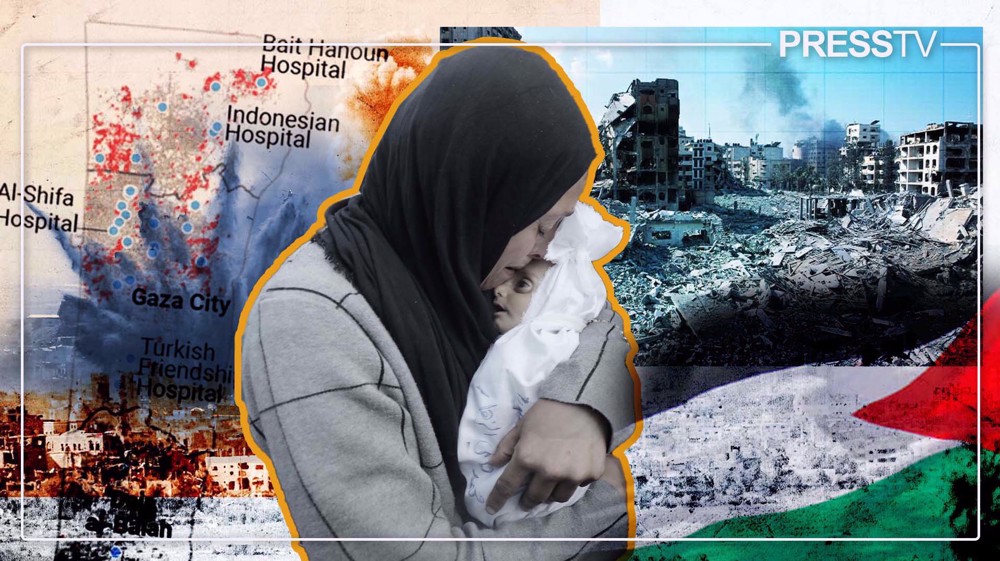
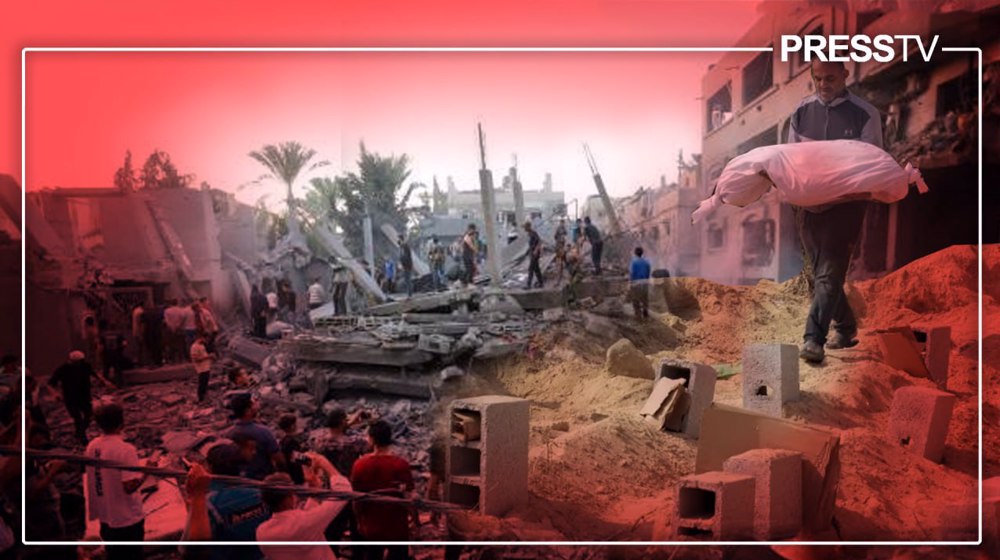
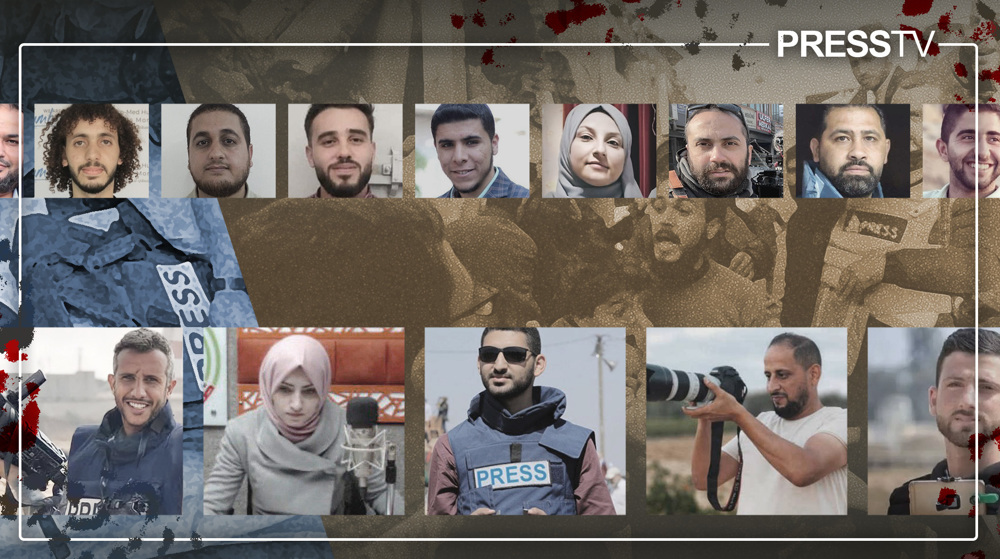
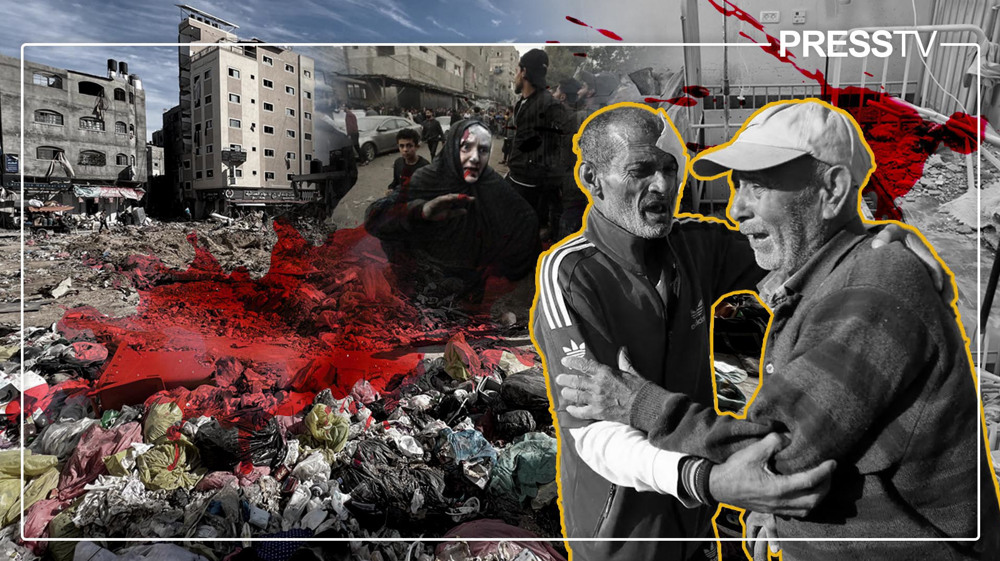
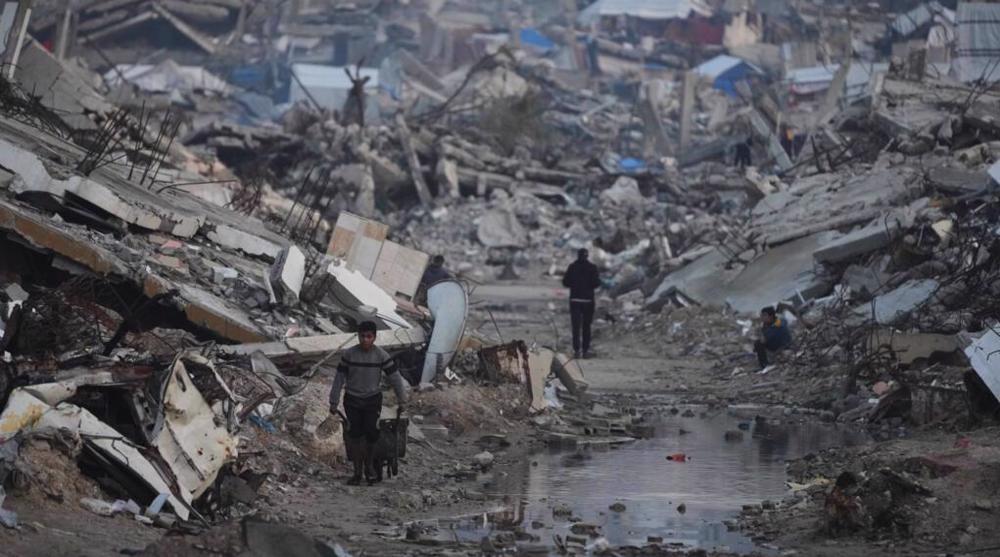





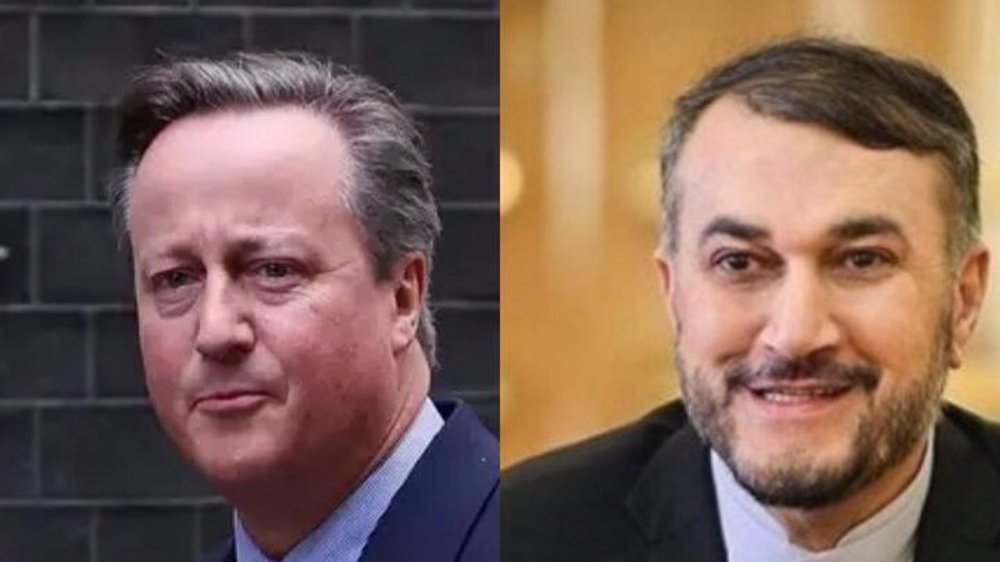
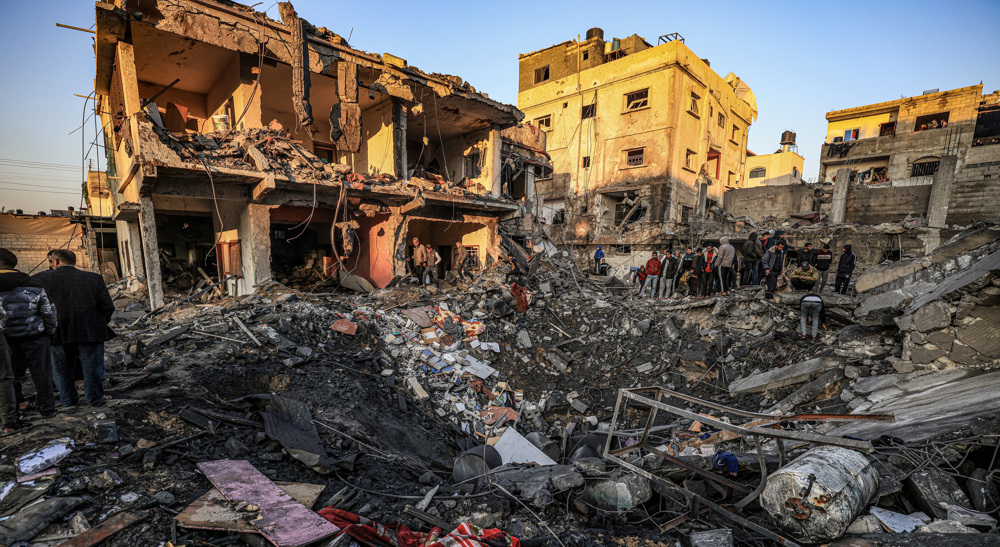
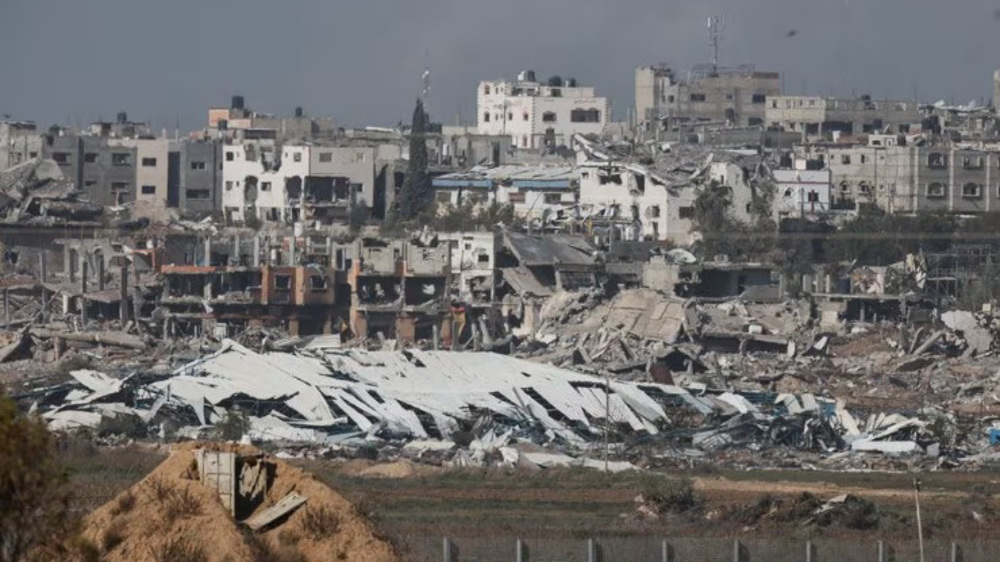
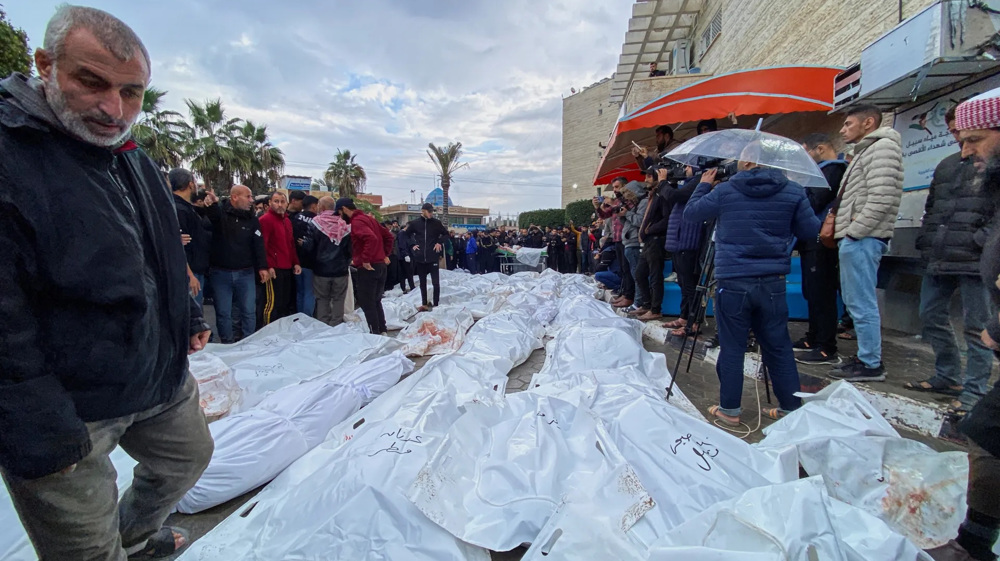
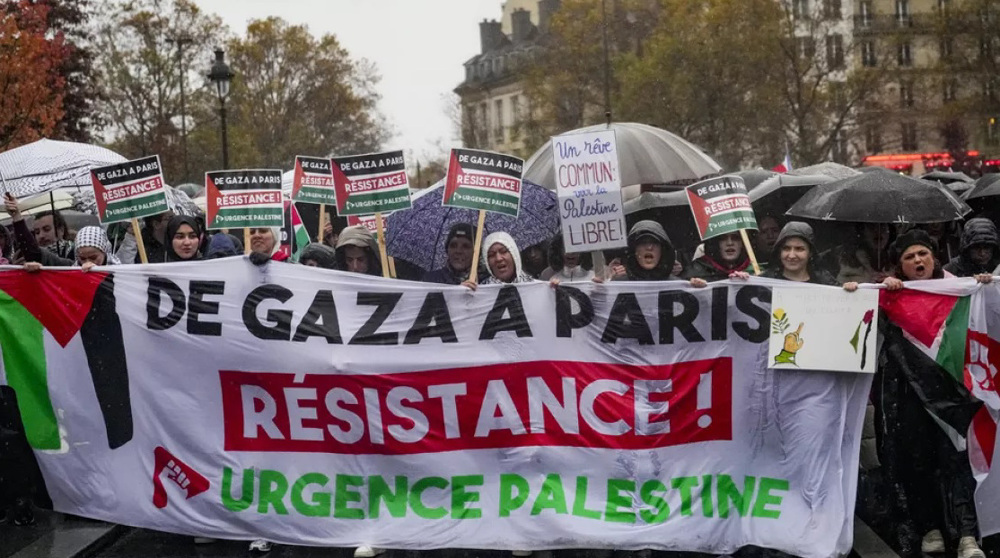

 This makes it easy to access the Press TV website
This makes it easy to access the Press TV website